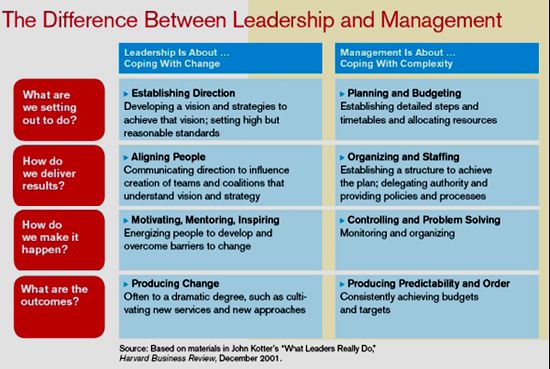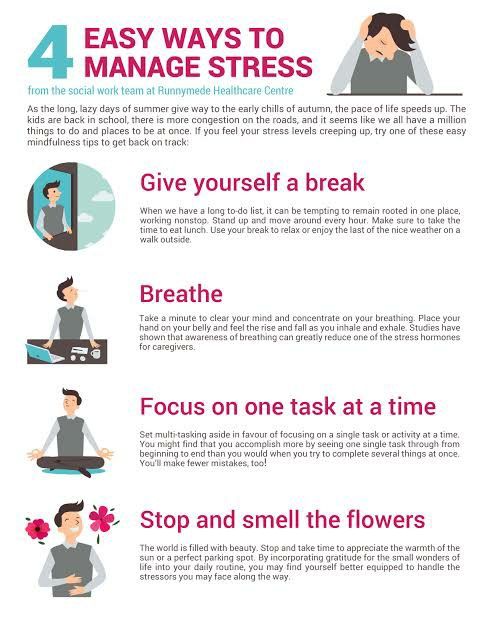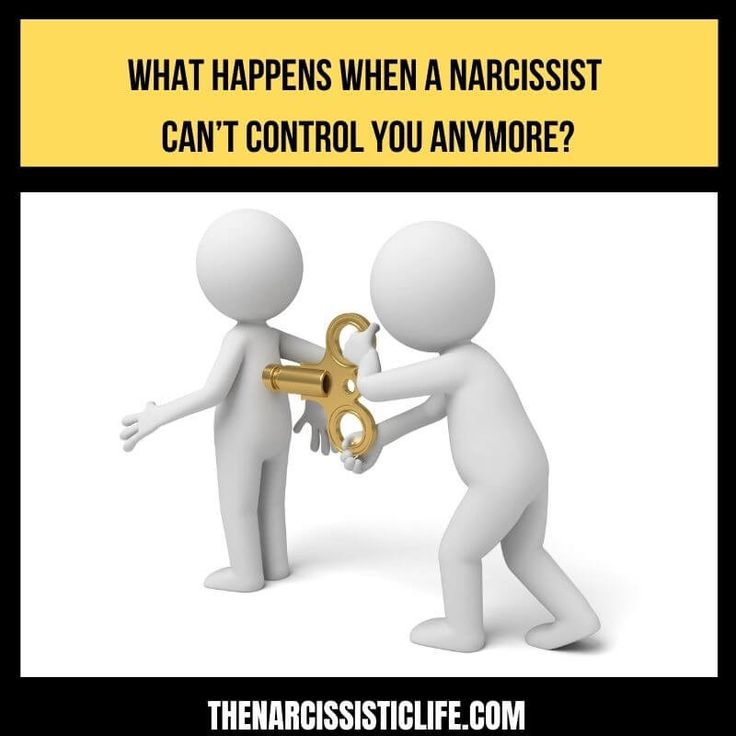How to deal with controlling husbands
How to Deal With a Controlling Husband
Living with a controlling husband can make your life a living hell. You want your marriage to work and would do everything in your power to keep the peace. But at what cost? You live with a permeating feeling of guilt and powerlessness all the time.
What is a controlling husband anyway? How do you know if he is just looking out for you or trying to micromanage your life in the name of love? A controlling husband tends to take charge of every aspect of your life and relationship, leaving you to feel totally out of control.
If that sounds like your husband, you must be asking yourself, ‘How can you live with a controlling husband?’ ‘ Can a controlling husband change?’
Well, first things first, let’s look at the signs of a controlling husband first, and then we will take you through the ways to deal with him effectively.
15 Signs Of A Controlling Husband
You may be wondering if your partner is actually that controlling or you’re reading too much into things. Well, pay attention to the following signs of a controlling husband.
Here are 15 telltale signs that your husband is controlling:
- He is a nitpicker and finds problems in everything you do.
- He manipulates you to do whatever he wants.
- He criticizes your every move and wants you to change how you eat, dress, and act.
- He makes you feel guilty for not indulging his every whim.
- He gaslights you and makes you dissect your every thought and action.
- He makes you feel bad about having a life outside of your marriage.
- He tries to isolate you from your friends and family.
- He wants you all to himself and gets jealous whenever someone else gets your attention.
- He seems to care a little too much about your finances, and your financial independence has jumped out the window.
- He emotionally blackmails you by making demands and threats to have everything his own way.

- He doesn’t respect your opinion, and you don’t have a say over any major decisions in your marriage.
- Even though he vowed to love you unconditionally, such a husband only offers love with ‘strings attached.’ He only loves you when you do whatever he says.
- He refuses to listen to you and dismisses your point of view without giving it a thought.
- He slowly destroys your self-esteem and makes you believe that he is the only person you can and should depend on.
- He doesn’t take you at your word and spies on you.
If your husband shows most of these behaviors, it isn’t all in your head when you keep thinking, ‘my husband tries to control me all the time.’
10 Ways to Deal With A Controlling Husband
Being married to an over-controlling husband can be very trying. The constant criticisms, the spying, and gaslighting take a toll on your mental health. So, if you’re wondering how to handle a controlling husband, keep reading.
So, if you’re wondering how to handle a controlling husband, keep reading.
We’re going to take you through 10 effective ways to deal with a controlling husband.
1. Keep your coolWhen you’re dealing with a controlling husband, it’s hard not to argue. He tends to get on your nerves, and you don’t want to bow to his unreasonable wishes. Well, you don’t have to. There’s another way around.
You should try to stay calm and patient when dealing with him. Instead of getting in his face, ask him gently if he has considered your perspective. Dominant husbands are unlikely to respond well if you treat them the way they treat you. Be the bigger person here.
2. Figure out the causes behind his controlling behaviorIn order to deal with a controlling husband, it’s important to know what makes a person controlling in the first place. Did your husband lose a loved one in an accident? How was his childhood? Was it traumatic? Were his parents controlling?
Does he have an anxiety disorder that makes him want to control you? Figuring out what’s causing him to behave this way is the stepping stone to dealing with a controlling husband. With love and empathy, you might be able to get him to stop being so controlling.
With love and empathy, you might be able to get him to stop being so controlling.
Once you identify the problem, you can understand where he is coming from. Then you should try to talk to him about how his behavior is damaging your marriage. Just a little reminder: he might totally blow you off and get angry.
After all, he isn’t willing to let go of the control. Most controllers aren’t even aware of their controlling nature. So telling him ‘You’re dominating your wife and you should stop right away’ won’t work.
You need to be respectful and gently remind him of the times he came off as controlling. Tell him how’d you like him to behave instead. He won’t magically transform into someone else overnight. But, talking to him openly about the issues is a good starting point.
4. Take charge of your lifeIt’s easy to lose yourself when your husband constantly criticizes your every move. You might be thinking, ‘My husband is too controlling. I should avoid doing things that I like because it upsets him.’
I should avoid doing things that I like because it upsets him.’
Take control of your own life. You want to quit your job and go back to school? Do it. You want to learn something new, but he wouldn’t allow you? Go for it anyway. Don’t let your passion die just because your husband controls your life.
5. Stay close with your friends and familyIt doesn’t matter how much your husband hates your best friend, don’t stop seeing her. Go visit your mom even if it sends him into a frenzy. You shouldn’t let him isolate you from the people who have always been there for you.
How do you stop a controlling husband from making your life miserable, you ask? You need to surround yourself with positive people. Explain why you need to see your girlfriends every once in a while.
Make plans with them, and don’t let your husband stop you from showing up at your friend’s party.
6. Don’t hesitate to ask for helpHow often do you feel scared of your husband? Does he seem abusive to you? Abuse doesn’t necessarily have to be physical. It can be verbal, mental, and psychological as well. Make it perfectly clear to him that you won’t tolerate any kind of abuse.
It can be verbal, mental, and psychological as well. Make it perfectly clear to him that you won’t tolerate any kind of abuse.
If he doesn’t listen to you and keeps getting violent, let your friends and family know about it. Even if your over-controlling husband promises not to do it again, keep an eye out and don’t let him walk all over you.
7. Set boundaries that stickYou must be thinking, ‘My husband is trying to control me. How can I set boundaries when he doesn’t bother listening to what I’ve got to say?’ First, you should try to talk to him calmly and try to explain the things you won’t take anymore.
If he ignores you, you should still set the boundaries and give him consequences to make him understand how serious you are about the limits you’ve set. However, withholding affection or leaving the house frequently won’t change anything if he doesn’t want to correct his behavior.
In the video below, Renee Slansky discusses why boundaries in a relationship are important and shares tips to set healthy boundaries. Check it out:
Check it out:
It might not be as easy as it sounds. But you should try to take control of your life and relationship. Stop letting him control you. If you’re financially dependent on him, get a job. Don’t let him destroy your self-worth. Take care of your mental and physical health.
Whenever he tries to make you feel small, stand up for yourself. If he doesn’t try to recognize and correct his controlling nature, be brave enough to give him an ultimatum. Tell him you’d move out if things don’t get better. Don’t be scared to follow through if push comes to shove.
9. Give couples therapy a tryWhat if your husband doesn’t bother trying to correct his controlling behavior even after your consistent effort to make him see how his actions are ruining your marriage? In that case, it’s time to involve a professional.
It doesn’t matter how he feels about therapy; try to make him understand how seeking professional help can improve your relationship. Through couples therapy, both of you can feel heard and sort out the issues with the help of a licensed therapist.
10. Be brave enough to leaveThere’s nothing wrong with going out of your way to stay with such a husband. It doesn’t make you look weak. Rather it shows how strongly you uphold your vows. However, you need to remember that some people simply can’t and won’t change.
If, after trying your best to deal with such a husband, he still can’t see any issues with his action, let alone fixing his controlling behavior, walking away from this unhealthy marriage might be your only choice. It doesn’t mean you failed your marriage.
You’re just choosing your physical and mental well-being over an unhealthy relationship.
Conclusion
There should be an equal balance of power in a healthy relationship. If you’re married to a such a husband, it might be hard to feel in control of your life. But, with open communication and counseling, you can regain a sense of control and feel happy again.
If you’re married to a such a husband, it might be hard to feel in control of your life. But, with open communication and counseling, you can regain a sense of control and feel happy again.
If your husband is willing to change and accept responsibility for his actions, it’s possible to fix the unhealthy power dynamic in the relationship. Otherwise, consider individual therapy to work on improving and maintaining your emotional health.
9 Signs Of A Controlling Husband And How To Deal With It
Jealousy, control in a marriage are complicated subjects to understand. Here, in this article, we have made a list of signs of a controlling husband to make it easy for you to check if you have one.
Marriage brings a lot of changes into a woman’s life, and the best way to adapt to them is by embracing them by making a few adjustments to your life. But there are some things that you should not entertain, and you should nip them in the bud, like your husband’s controlling and manipulative behavior.
Controlling husband traits include domination, manipulation, and intimidation. They don’t honor your wishes and constantly dismiss your views, impacting your mental health and self-esteem. Furthermore, it can seriously impact your confidence levels. In this article, we have listed some tips that can help you deal with your controlling husband. Scroll down to know more.
In This Article
9 Signs Of A Controlling Husband
Shutterstock
Before finding a solution, it is essential to diagnose if there really is trouble in your paradise and that it is not something trivial or momentary. Here are 9 signs of a controlling husband. If your partner exhibits more than 4 such behaviors, you need to take a step soon:
- He Constantly Criticizes You: This is one of the most obvious signs that your husband is trying to take control over you. He criticizes you at every step. It can begin with the simplest things, like how you do your work or dress up, and eventually worsen.
 It will not only put you down but also break your self-confidence gradually. It can also chip away at your self-worth, making you question yourself and become more dependent on him.
It will not only put you down but also break your self-confidence gradually. It can also chip away at your self-worth, making you question yourself and become more dependent on him.
Related: Everything You Need To Know About How To Deal With What People Think Of You
- He Makes Your Feel Guilty: Controlling people often make you feel guilty when you do not go according to their wishes. Moreover, they will try to manipulate you into doing things they like. They will also twist words and blow any argument out of proportion so that you end up being the bad person while they pose as the victim.
- He Gets Jealous, A Little Too Much: There is always some level of jealousy in all relationships, but when you have a controlling husband, it can go overboard. He will read too much into your conversations with other guys. It can also end up in him spying over you by checking your phone calls, emails, and so on.

- He Cuts Off Your Social Relations: A controlling husband wants to weaken your spirit and keep others from finding out and helping you deal with the toxic relationship. That is why he will try to cut your communication with others and isolate you. Just like criticism, isolating you will begin slowly and get worse over time. His possessiveness and jealousy will also play a role in this, leaving you unguarded and vulnerable.
- He Wants To Know Everything About You: From whom you are talking to on the phone to your financial status, your controlling husband would want to know every little detail. He may even start hijacking your decisions and controlling your actions directly or indirectly.
Stylecraze Says
He wants to make all the financial decisions himself, right from controlling the budget to making you take credit cards or loans and stopping you from getting a job to earn money.
Shutterstock
- He Threatens You: Whenever there is a fight, he may threaten to leave you or take away your kids or reveal your secrets to your family.
 The threats can be of any magnitude, but it is a way of extreme emotional manipulation he tries to pull over you.
The threats can be of any magnitude, but it is a way of extreme emotional manipulation he tries to pull over you. - He Gaslights You: Gaslighting is a technique where a person tries to manipulate your thoughts, making you question yourself. It is a form of emotional abuse that is often found in controlling people. They challenge your sanity and wear you down to such a state that you start doubting yourself and feel like you have to rely on them. It sets the stage for further manipulation and control.
- He Ignores What You Say: If your husband wants to control you, he will ignore everything you say. Your words will fall on deaf ears, and this will again affect your self-confidence. He might even belittle you when he dismisses your opinions in front of others.
Stylecraze Says
He doesn’t care about your goals, and will only cheer you if they align with his vision. If not, he will belittle you or make it challenging for you to achieve them.
Related: 8 Things To Do When Your Husband Ignores You
- His Love Comes With Conditions: A controlling husband will shower you with love as long as you give in to his conditions. For instance, if you are busy at work, he will not show you any love or affection. But as soon as you start caring for him, he can be the best husband ever. So, you will have to work harder for his love every time, and that’s not how a healthy marriage works.
Marriage to a controlling husband can be tricky to navigate. The constant criticism, manipulation, and emotional abuse impact your mental health. So, before things become worse, it is best to take steps. Head to the next section to know how you can tackle these manipulation techniques aimed at asserting dominance over you.
How To Deal With A Controlling Husband
Shutterstock
Here are a few tips on how to cope with a controlling husband:
- Stay Calm: A controlling husband can be quite irritating, but you need to calm down.
 Be the bigger person and ask them gently about issues. It may look like you are surrendering to him, but you are just trying to blow down the fire. This reverse psychology may help you and turn things in your favor.
Be the bigger person and ask them gently about issues. It may look like you are surrendering to him, but you are just trying to blow down the fire. This reverse psychology may help you and turn things in your favor. - Take Control Of Your Life: Stop feeling guilty and weak if your partner wears you down. Instead, take charge of your life and appreciate yourself. It will strengthen your confidence, and you can control things better. Try taking up a new hobby and spend time doing the things you like.
Related: 101 “I’m Sorry” Quotes To Apologize To Your Partner
- Figure Out The Reason For The Behavior: Try to trace the events that led to this behavior. It could be anything – from a traumatic childhood to the death of a loved one. He may also have some mental health issues like anxiety or bipolar disorder. Once you know the reason, you may be able to help him. Remember, love can heal the deepest wounds.
- Keep A Strong Support System: Being alone never helps, especially when you have a controlling husband.
 So, keep your friends and family close to you. Make plans with them and share your troubles. Don’t let your husband isolate you.
So, keep your friends and family close to you. Make plans with them and share your troubles. Don’t let your husband isolate you. - Set Boundaries: This step is helpful when your husband wants to know everything about you. Tell him about your limits and the consequences of any violation so that he understands how serious you are about the boundaries. It is time-taking yet worth it.
- Try Therapy: If nothing works, you can always go to a professional therapist to sort the marital issues. This way, you both will get the chance to speak your side of the story and find answers to what is causing this behavior.
Shutterstock
- Ask For Help: People often hesitate to ask for help when it comes to marriage. Avoid this mistake if you have a controlling husband who torments you mentally, verbally, and physically. Do not wait for things to escalate to physical abuse. Instead, speak up and let your friends know.

When things get out of hand, and you feel unsafe and unheard in the marriage, it is time to call it quits. After all, nothing is more important than your mental health and happiness. Scroll down to know ways to exit the relationship safely.
Related: 10 Signs Of An Emotionally Immature Person And Ways To Deal
Getting Out Of A Controlling Relationship
Shutterstock
A healthy marriage is based on love, respect, and care. If you feel that your controlling husband’s behavior has jeopardized all these things and you just cannot take it anymore, it is the right time to walk out of the relationship.
You can go for a divorce. But before that, make sure you have a strong backup. Assemble your support system, think about finances, and if you have kids, think about custody as well.
Another way is to seek professional help from a lawyer or marriage counselor. They will find out the right steps for you to get out of the toxic marriage. Leaving a relationship is difficult but if it is taking the life out of you, choose yourself.
A controlling husband is not only particular about your whereabouts, whom you meet, and how you spend every single minute but may also turn out to be aggressive or abusive. Excessive possessiveness, inquiring about every tiny detail, and offering to schedule your day in spite of your will may be signs of a controlling husband. As much as it is important to know when and how you connect with a person, it is also important to be aware of toxic relationship signs. Minimum respect, care, and trust are important to keep a relationship going. If you find yourself feeling alone, left out, disrespected, or abused in any way, it is important to identify the toxic traits and take a stand for yourself.
Frequently Asked Questions
What is the difference between caring and controlling?
Sometimes, people confuse controlling behavior with care. That’s why they slowly find themselves stuck with a controlling partner. So, it is important to know the difference between the two.
Here is a list of distinctions between caring and controlling behavior in various scenarios:
1. Rules
Rules
Caring: When you both create rules to make your relationship successful.
Controlling: When the rules he ‘creates’ apply only to you.
2. Meeting Friends
Caring: He offers you a ride when you go to meet your friends and even joins you at times.
Controlling: He meets his friends and family but stops you from doing the same.
3. Calls And Messages
Caring: He drops a sweet message occasionally to know how you have been doing and says he misses you.
Controlling: He calls you all day to know where you have been and who you have been with.
4. Compliments
Caring: He boasts about your career in front of his friends and family.
Controlling: He talks about your job in a condescending way.
5. Social Media
Caring: He comments on your pictures, saying how you look hot and beautiful.
Controlling: He checks your social media and controls what you post and comment.
6. Fights
Caring: There will be fights, but they don’t stay for long. Both of you end up apologizing and understanding.
Controlling: He blames you every time and makes you feel guilty.
Frequently Asked Questions
Why is my husband so controlling?
There are various reasons behind a man’s controlling behavior, not the least of which is a lack of awareness about what a healthy marital relation should be like. Other factors include substance abuse, financial or emotional insecurities, and personality or mental health disorders.
Will a controlling man ever change?
It may be possible for a controlling man to change with therapy, clear boundary setting, and honest communication.
Is being controlling abusive?
Yes, being controlling can be considered to be emotionally and sometimes physically abusive, depending on the extent to which the control is exerted.
How do you fix a controlling relationship?
Setting boundaries, communicating, and going for therapy or marital counselling are the most important ways to help fix a controlling relationship.
Key Takeaways
- A controlling husband will criticize you and break your self-confidence.
- Your husband’s jealousy, possessiveness, and gaslighting behavior can wreak havoc on your mental health.
- Setting clear boundaries, helping him get therapy, and building a strong support system for yourself can help you deal with a controlling husband.
The following two tabs change content below.
- Reviewer
- Author
As Head Of Content Operations, Harini sets the tone and editorial direction for StyleCraze to deliver engaging, interesting, and authentic... more
Dr. Holly Schiff is a clinical psychologist licensed in both CT and NY. She was awarded a Doctorate of Psychology... more
How to communicate with controlling people?
24,175
Man among men Know thyself
We are annoyed when someone tries to decide for us what to do and how to live. But if among our loved ones there is a person who is inclined to control everything, we should be especially careful - otherwise we may lose our will and subordinate ourselves to his desires.
“The controller believes that he has the right to control the life of another person, because he perceives it as an extension of himself,” says psychologist Patricia Evans, author of the book Controlling People. - In the depths of his soul, such a person cannot recognize the independence and separateness of the existence of another. nine0003
He has an illusion of an ideal world in his head. If it conflicts with reality, the controller tries to correct reality, but not his ideas about it.
Why is it so difficult to resist attempts at control?
First of all, it is difficult for us to recognize them - especially if they are expressed in a soft and hidden form, in the form of advice, suggestions or jokes. Common phrases that the controller uses are “you are making a mistake by marrying him”, “if I were you, I would think more”, “deep down you know that I am right” . ..
..
Our unwillingness to spoil relations also has an effect. “Often the controller is among the people close and significant to us,” says Patricia Evans. - It can be one of the parents, partner, boss.
Growing up, such a person is unable to hear himself, recognize and name his emotions
In such relationships, he takes a stronger position and at first seems smart, authoritative, self-confident. If we fail to stand up for ourselves from the very beginning, we can become addicted.” nine0003
It may very well be that in childhood others did not pay much attention to the feelings and needs of such a person. He received instructions and hints from others what to feel, what to think. The manifestations of his own "I" were not considered.
Growing up, such a person is unable to hear himself, recognize and name his emotions. Instead, he focuses on the image that his elders instilled in him. Therefore, he builds his relationships with others in the same way - applying to them the “correct” image that already exists in his head. nine0003
nine0003
“He doesn’t realize how unrealistic his expectations can be and how unrealistic his demands can be.”
“When a friend, lover, or child does not do what is expected of him, the controller begins to behave irrationally,” explains Patricia Evans . “This behavior reflects the controller's fear — the fear that his world will lose its integrity. Therefore, he does not realize how unrealistic his expectations can be and how unrealistic his demands can be. nine0003
What if you are already dependent on the controller? First of all, advises Patricia Evans, it is necessary to separate your own thoughts and feelings from those that another person imposes on us.
"Some, especially children of controlling parents, live for years as if under the Imperius spell from the Harry Potter books - unable to make a strong-willed decision and doing only what others demand of them," says the psychologist. “But if you realize that you are fitting your life into someone else’s illusion, and find the courage to separate reality from fiction, you can break the spell. ” nine0003
” nine0003
HOW TO RECOGNIZE THE CONTROLLER
- It is important for him to always be right.
- He is sure he knows who you are and what you "really" need.
- He thinks you're wrong if you don't agree with him.
- Perceives doubt in his words as a direct attack on himself.
- Does not listen and does not hear other people's arguments.
How to free yourself from the influence of the controller?
1. Find your inner core
Those under the controller's spell begin to believe the story they are told. They get used to thinking in other people's categories, speaking in other people's words and phrases, they begin to navigate better in other people's illusions about their life than in their own ideas about it. nine0003
To develop immunity to controlling behavior, you need to create your own, alternative history. Make your own decisions, no matter how difficult they may be. Find yourself a business that you will do alone, without asking for advice and tips. So you will know for sure what you are capable of and where you want to go.
So you will know for sure what you are capable of and where you want to go.
2. Work on your self-esteem
One of the most common controller tricks is to belittle the interlocutor, to inspire him with a sense of insignificance. "You won't succeed." "You are nothing without me." "Without me, you would be lost." nine0003
The best way to avoid reproaches from the controller is to find as many positive aspects in yourself as possible. Write down your good qualities on paper. Don't be afraid to exaggerate a little. Describe something you've ever done successfully (even if it's a nailed shelf).
Direct confrontation may not produce results, but on the contrary, will only increase the controller's anxiety. nine00033. Be firm
Direct confrontation may not work, but on the contrary, will only increase the controller's anxiety. Instead, it is better to firmly express your attitude to the situation.
Let's say, "I feel uncomfortable when you tell me what to do and how to think.
In the future, I would like you to respect my opinion and recognize my right to make my own decisions.”
4. Ask questions
A simple question "what?" can be very effective in pointing out to the controller that their behavior is irrational. Don't be afraid to look stupid. nine0003
If you persistently ask the interlocutor to clarify what he wants from you, you will make him think about his own words. As a rule, the controller is able to realize that he is too demanding, but it is difficult for him to do this during a conversation.
5. Consult a therapist
The dependency relationship that forms between a controller and their companion can be very strong. If your attempts to reconsider the situation do not lead to the desired result and you are afraid to break off the relationship, it is better to seek the help of a professional. nine0003
Source: P. Evans Controlling People: How to Recognize, Understand, and Deal with People Who Try to Control You (Adams Media Corporation, 2002).

Text: Anton Soldatov Photo source: Getty Images
New on the site
“I can’t give the girl the same emotions that she had in a relationship with her ex”
“I told my friend what I was going to give her for the New Year — now we are at odds”
The Joker, Voldemort and Ursula the Witch: Why We Love Movie Villains So Much
How to stop being angry with your ex: 3 simple steps — follow our instructions
What to watch for parents to better understand children: 6 Russian and foreign films
How to choose a good psychologist: what to look for and whether to trust reviews on the Internet “Many people see me as the ideal of beauty, but I find only reasons for disappointment”
No toxic jokes: how cancellation culture is killing stand-up comedy
6 steps to personal boundaries - Knife
What are healthy personal boundaries
From a psychological point of view, boundaries are the awareness of oneself as a separate person from others with their own emotions, values and physical personal space.

Personal boundaries have several components:
- emotional boundaries — the ability to distinguish one's own emotions from the experiences of other people;
- physical boundaries - a sense of personal space that you protect and where you do not allow intrusion without permission; nine0038
- value boundaries — understanding of one's own system of values. This helps to distinguish values close to you from alien ones and follow them.
A person with healthy personal boundaries understands that he is fully responsible for his emotions, desires, words and actions in the same way as other people - and clearly sees where the boundary lies between his "I" and others. Such a person does not shift responsibility for his feelings to others (“I am ashamed that my son chose the wrong profession. It makes me unhappy!”), And does not believe that he should or can control the behavior of other people (“If I will pay more attention to my beloved, she will stop drinking").
nine0003
How boundaries appear
The world around us constantly tests our strength: at work there is always a colleague who is ready to dump his duties on others, in companies there is an annoyingly frank friend, and even some friends tend to sit on the neck. But the hardest thing is to build healthy personal boundaries in your own family.
Man is not born with ready-made boundaries. On the contrary: at first, the baby develops as a part of the mother's body, and then, in the first months of life, is in complete psychological fusion with her. Gradually, until the age of 17–20, a new person gains independence. nine0140
For a child to become a full-fledged adult, not only his efforts and time are required, but also the active assistance of parents. Only now they do not always play a constructive role in this process, and sometimes they energetically impede healthy growing up.
Toxic parents are not called toxic because we don't like them.
Most of them - controlling, helpless, drinking and using violence - are united by an unconscious desire at all costs to keep the child with them in a state of codependency and subordination. nine0003
Signs that parents violated (and continue to violate) your boundaries
Checklist from Evgenia Bogdanova, psychologist, leader of the Toxic Parents project
If in relations with parents the child constantly has to adapt to their needs, in the end he loses himself and ceases to understand what he wants himself.
😱 You constantly try to be "nice" or "nice"
Your parents taught you that the only way to win the favor of significant people is to give in and please them.
😱 You are prone to co-dependent relationships
Girls from abusive families often choose cruel and demanding men like their father for their husbands, and men choose overprotective and controlling women like their mother.

In a toxic family, the child receives very little approval and, as a result, becomes extremely dependent on the assessments of others. This is the path to co-dependent relationships not only with parents, but also with partners in adulthood. nine0140
😱 You have a black and white mindset
You find it hard to keep in mind that each of your acquaintances has both good and unpleasant traits. You are more accustomed to dividing those around you into “bad” and “good”, into “us” and “strangers”.
😱 You experience background irritation or attacks of aggression
It is normal to get angry when your personal space is invaded without asking. But children of toxic parents most often have a ban on expressing negative emotions, because "you can't be angry with your mother." As a result, most of the time a person tries to be nice, but sometimes loses self-control and suddenly unleashes a flurry of negative emotions on loved ones, or constantly tries to offend others in a passive-aggressive manner.
nine0003
😱 You are prone to harsh self-criticism, self-hatred, sometimes self-harm
Suppressed aggression, when it is impossible to express it to the addressee, can turn against the person himself. Then he blames himself for all the problems, does not forgive himself for mistakes, hates some of his features. Strong repressed anger at parents can even cause unwillingness to live.
How to build boundaries with parents
Step 1. Recognize the problem
To solve a problem, you must acknowledge its existence. Yes, certain (or many) aspects of your relationship with your parents make you uncomfortable, and you would like to change this. This does not mean that you are a bad son or a bad daughter, do not love your parents and do not appreciate what they have done for you. But the existing relationship is unhealthy, and it is worth trying to improve it.
What prevents admitting that there is a problem:
Shame
When a child is beaten and humiliated at home, he does not think that mom or dad is bad, but that he himself deserved such treatment.
Both children and adults often do not tell anyone about domestic violence because of shame, fear that they will be judged or not believed and laughed at. Unlike a child, an adult can realize that only the aggressor is guilty of violence and he should be ashamed.
Fantasy of an ideal childhood
We all want to have a fabulously happy childhood. Many cherish the illusion of a “strong family” and “strongly loving parents” who are repressive and controlling just because they “want the best for you.” It is very painful to admit that your parents treated you cruelly not for your good at all, but because they thought only of themselves: their anxiety, their fears, their ambitions. Often they themselves are also children of toxic parents and have not seen an example of a healthy relationship. nine0003
Rationalization
Children are not able to critically evaluate the actions of their parents and over the years they get used to coming up with an excuse for everything: “Dad works very hard, and drinking is the only way for him to relax.
And when he is sober, he is completely different "or" Mom constantly has to sort out the problems that dad gets into. It's no wonder she's nervous and agitated." These explanations become an integral part of our picture of the world, and it takes a lot of effort to realize how everything really looked like. nine0003
Step 2. Accept the characteristics of parents (does not mean forgive)
Even many psychologists confuse the concepts of "acceptance" and "forgiveness" when it comes to parents.
To accept means to accept that an adult is who he is, and it is unlikely that he will change (especially according to your, and not of his own free will). And then act with this understanding in mind.
For example, your mother is demanding and domineering, while your father is cold and rejecting. You can require parents to follow certain rules in communicating with you, but you cannot make them other people - softer, kinder, more empathic, responsible, etc.

Build your plans for the weekend and for the future of your children, based on this reality, and not hoping that one day your parents will miraculously change, see the light and appreciate you.
See also
Should we forgive our parents and should we love them? Do not believe the "experts" who say that it is necessary to forgive your parents at all costs "for your own good", or even intimidate: "Otherwise, you yourself will never build a happy family." nine0003
The idea of unquestioned parental authority of parents is rooted in Christian culture, in which the father and mother are under any circumstances higher in the hierarchy than the children, and their actions are not subject to condemnation.
But when such ideas are expressed not by a priest, but by a secular psychologist, this is at least a sign of unprofessionalism. Forced forgiveness, to which you have not yet matured, prevents you from recognizing the problem and taking on its solution.

By forcing yourself to forgive, you again suppress your anger and resentment, driving them even deeper into the unconscious, instead of understanding their reasons. nine0140
Perhaps, having understood your feelings and relationships, you will sincerely forgive your parents. But this is definitely not something that can be done by an effort of will.
Step 3: Set your limits
Assume your parents won't guess your needs just by looking at the calendar: "Oh, he's 22 now, he should probably stop calling ten times if he doesn't pick up. phone at nine o'clock." They got used to the manner of communication that has developed over the years. So explaining the new rules in such a way that they are understood is your task. nine0003
And to do this, you first need to deal with yourself.
- What habits of your parents when interacting with you especially annoy you, and what habits can you just ignore? Or be patient, but infrequently?
- What do you generally consider acceptable and unacceptable in communicating with you? Make a list.

- How much emotional, physical and material assistance to parents are you ready to provide, and what is already too much?
It is your right to give your parents as much attention and time as you can, and not as much as they require. nine0140
After all, if your parents are severely traumatized or mentally unstable, their needs can be insatiable and their demands endless. Remember the definition of healthy personal boundaries: not only should you be responsible for yourself and your needs, but your parents should also be responsible for theirs.
Quite often exorbitant demands are made by quite healthy and able-bodied people aged 50-60. Seriously ill and elderly parents, of course, require more attention, although in this case it is also necessary to separate manipulations and real needs. Regular monitoring by a cardiologist, a supply of medicines and food is a necessity. And two-hour discussions of sores that escalate every time you somehow behave incorrectly are manipulation.
nine0003
Be honest with yourself. If you are stressed out by traveling to your mother every weekend, but deep down you are convinced that you have no right to refuse her, this is a good topic for debriefing with a psychotherapist. As you set new boundaries with your parents, your arguments will be more persuasive if, through the therapist, you feel that they are valid.
Step 4: Agree on new communication rules
Toxic Parents author Susan Forward suggests starting to establish new rules with a process of confrontation. nine0003
This is how you finally acknowledge your right to the emotions that have been suppressed for years, and express them at the address. If the heat of passion is too great and you are afraid to slide into a banal skirmish, Forward recommends that you first practice and then send a carefully thought-out letter to your parents.
Whether or not to express everything that has accumulated over the years of unhealthy communication - look at the circumstances.
Be sure to clearly formulate the rules of your communication in the future:
When compiling a wish list, be as specific as possible
Simple and clear requirements are hard to misunderstand or ignore. For example, instead of “Respect my personal time!” say: "If you are going to come to visit, please give at least a week's notice."
Motivate: explain that the decision is beneficial primarily for themselves
For example: “If you inform in advance about your arrival, I can find more time for you and not be distracted by constant calls from work.”
Involve parents in discussing new conditions
If they make their own choice, they will take it more seriously. For example: “Mom, I have two hours free on my day off. What do you want more - for me to help you with the cleaning, or is it better to spend this time going to the mall?"
Leave room for bargaining
Think in advance what you are ready to give up in points that are not important for you.

Step 5. Stand your ground
You will have to be persistent. Most likely, parents are satisfied with the current status quo (they set it up!), and they are not eager to change anything. Most often, parents use two tactics: waiting and resistance .
Relatively calm and balanced people simply will not believe that you are serious with these rules of yours, and will wait until you give up "playing independence".
Suppressive, overprotective, and critical parents will actively oppose the "new order." The stronger your codependency with them and the greater role you played in the family system, the more active the resistance will be. And if your parents are mentally ill or simply very toxic, a real war can be launched against you. nine0003
You should also be mentally prepared for this. The daughter, who yesterday was "our beloved princess", will become an outcast, and the son, "the pride of the family", will become a traitor.

In the worst case, they will be ignored and silenced, set against you by other relatives, demonstrative "heart attacks" and even accusations of insanity or being recruited by a cult (all these are real cases from the life of members of the "Toxic Parents" support group).
You will most likely want to give in in order to return everything as it was - this is exactly what is expected of you. But if you want not manipulative love, which you will be "bestowed" as a reward for the behavior they want and are uncomfortable for you, but respect for you as a separate person, you need to stand your ground. nine0003
Embrace the positive and negative reinforcement system popular with American parents. In a neutral tone, repeat your demands over and over until they reach the addressee, and show that undesirable actions have their consequences.
For example: "Dad, you're yelling at me on the phone again and you know I don't like it. Now I'm hanging up. Let's talk when you calm down.
" And on the contrary, praise your parents for every step you take, because it was most likely not easy for them. For example: "Mom, I really appreciate that you remember your promise and refrain from discussing my appearance." nine0003
If the parents are not in the mood to give in, it may be useful to take a break, that is, reduce communication with them for a period, so that they have time to get used to the changes. And then repeat your conditions again.
Step 6. Adjust the strategy
If your relatives did not recognize your autonomy from childhood, it is quite difficult to find the right balance without falling into the opposite extreme. Make sure that too soft boundaries do not change into radically hard ones. For example, you used to obediently answer mom's calls even in the middle of the night, and now you explode from an innocent question about plans for the weekend. nine0003
Be flexible and start small. For example, set a moratorium on late-night calls and enter a rule: "Do not call a second time if I do not answer the phone: this means that I am busy and will call you back as soon as I can.
"
If you feel that you went too far and somehow imperceptibly came to swearing, tantrums and showdown over the previous 20 years, you should admit your part of the blame and ask for forgiveness. Perhaps you set too high demands that your parents cannot digest so quickly, or expressed them too categorically. nine0003
Wait for everyone to calm down a bit and offer concessions that you can accept. Most likely, your parents will not want to lose you at all and will accept them favorably.
You may not get the result you expected. For example, you just wanted your parents not to enter your apartment without asking, and as a result, they quarreled with half of the family. If you behaved correctly, did not ask your relatives for anything excessive, but received scandals and boycotts for months in response, this is a reason to think: do you really need this relationship? nine0003
Unfortunately, sometimes the result of building boundaries is a break with one of the parents, or even with both if they are a codependent couple: for example, an alcoholic and his “rescue victim” or a narcissistic woman and her “devout admirer”.















